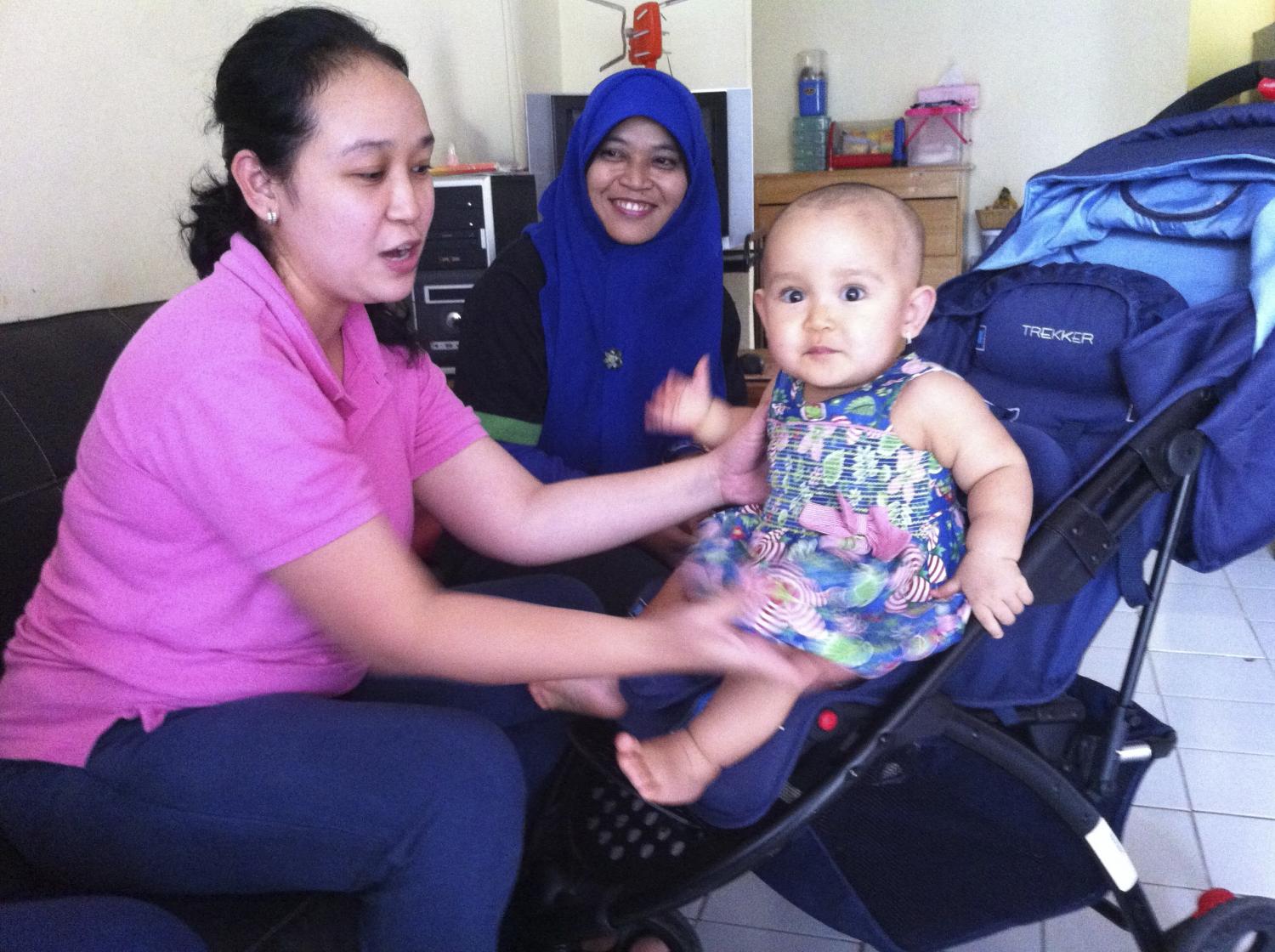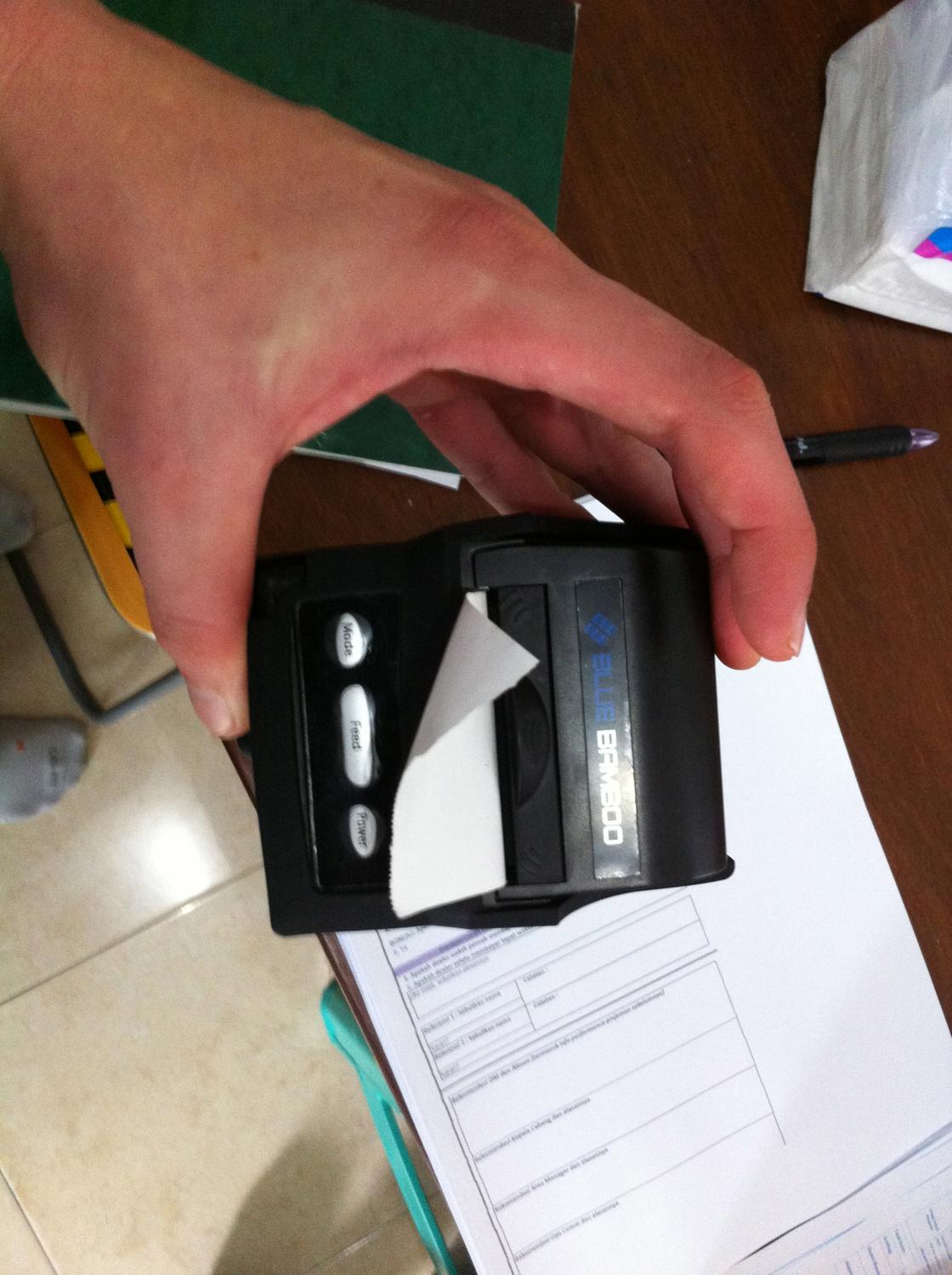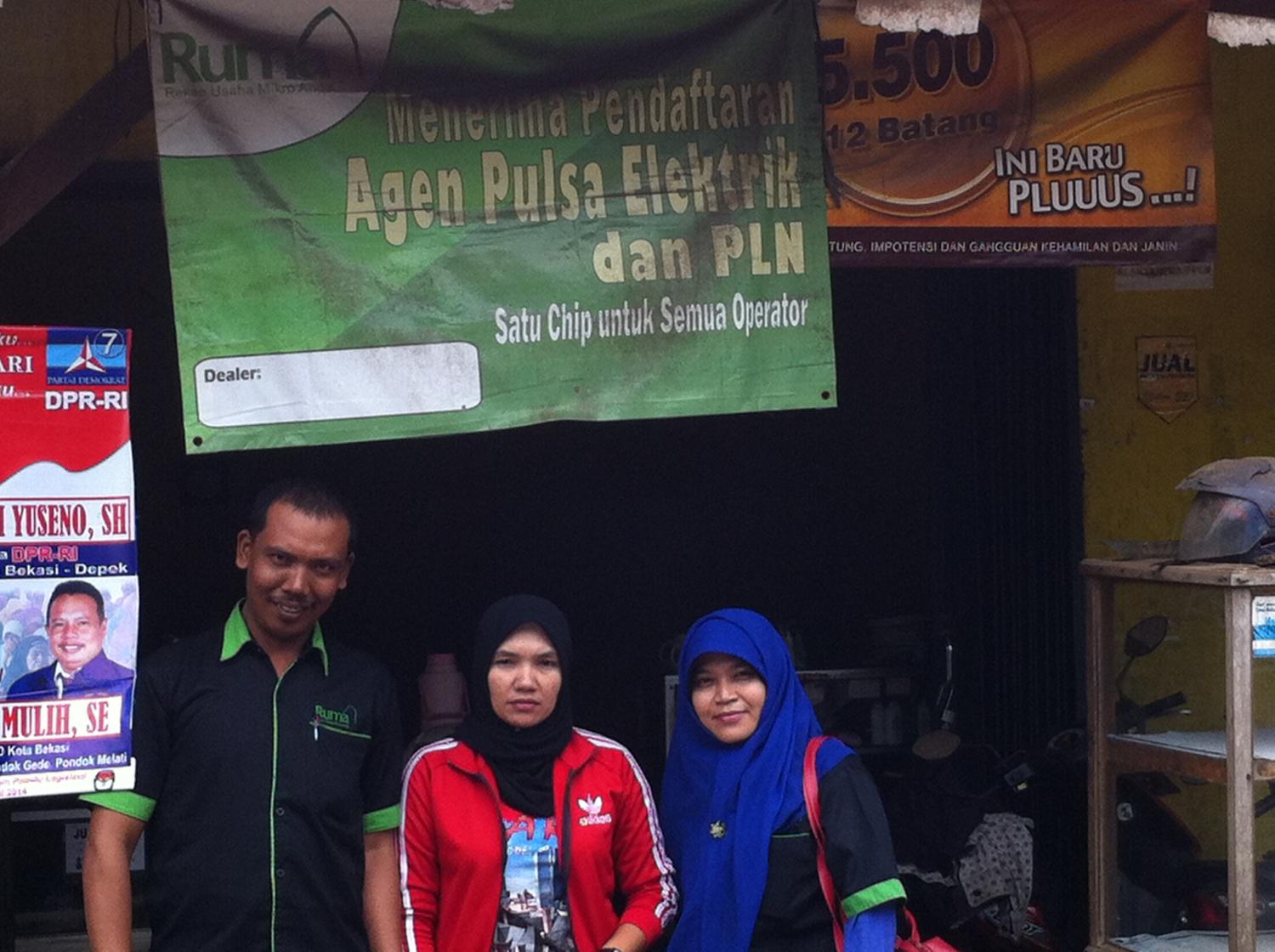
Many people have no doubt heard of the success of mobile banking in Kenya through M-PESA, a service that has expanded financial services to millions of rural East Africans. In the East Asia and Pacific region, 55% of the population is unbanked. At the same time, mobile phones are widespread – which begs the question: what is the holding the region back from experiencing a similar revolution in banking access?
The most apparent answer is a lack of sizeable solutions. Banks, mobile service providers, and even governments are starting to offer small scale mobile banking solutions, but none on the scale of M-PESA in Kenya or Easypaisa in Pakistan.
In Kenya, 73% of mobile phone owners use mobile banking services – and mobile money agents outnumber bank branches by more than 100 to 1. These agents act as outlets to collect cash deposits and distribute mobile credit.
 A Ruma agent at her home with her young child. Agents can work from their homes or existing stores, allowing for a flexible and convenient additional revenue stream
A Ruma agent at her home with her young child. Agents can work from their homes or existing stores, allowing for a flexible and convenient additional revenue streamHere in Indonesia, Kiva partner PT Ruma is also building a network of field agents to change cash deposits into mobile credit. Beyond expending a service that inherently provides benefit to their end customers, PT Ruma is also creating opportunities for entrepreneurial field agents to earn additional revenue streams. Most field agents already own small “warungs” – roadside shops that sell staples ranging from instant coffee to soap, and most things in between. Agents are able to recruit “downstream” agents to increase their commissions, depending on their motivation and management acumen.
Kiva loans are provided at 0% interest directly to the agents, who use the loans to “top up” their mobile credits, which are then disbursed to their customers in exchange for cash. This is all made possible by a sophisticated system using SMS messages, an Android based app, or a computer to record and report transactions directly to PT Ruma. Electronic receipts are provided to the customers (or printed receipts, if they so choose).
 A bluetooth printer, purchased by Ruma agents to provide receipts to customers
A bluetooth printer, purchased by Ruma agents to provide receipts to customersThe problem with mobile banking in Indonesia is that the credits cannot be used on as many goods and services as M-PESA. A market leader needs to emerge, which can consolidate customers, field agents, and companies/banks accepting mobile credits.
PT Ruma is on the cutting edge of this process, and is hoping to be on the verge of significant expansion. As a Kiva Fellow spending some time with PT Ruma, it is very exciting to see Kiva playing a crucial role in promoting innovative financial inclusiveness in a vastly underserved market.
 A Ruma agent posing with field officers in front of her warung
A Ruma agent posing with field officers in front of her warungBeyond mobile banking and bill pay services, Ruma also facilitates microsavings through a partnership with BTPN (Bank Tabungan Pensiun Negara) and sells mobile airtime credits. To date, they have facilitated over 10 million transactions through their network of more than 20,000 agents.
Want to read more about Kiva partner PT Ruma? Click here to be taken to their partner profile page, where you can also find a list of all of their actively fundraising loans.
PREVIOUS ARTICLE
The long, lonely road to becoming an engineer in Burkina Faso →NEXT ARTICLE
From Zimbabwe: A Sacred, Solemn Rally Cry →













